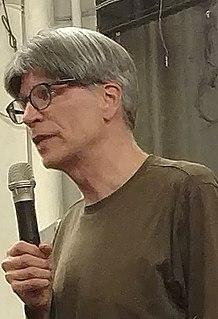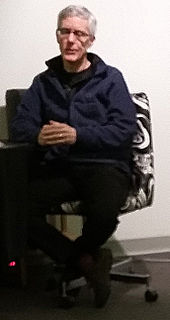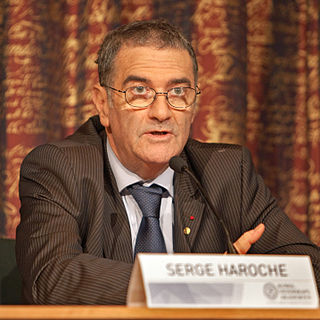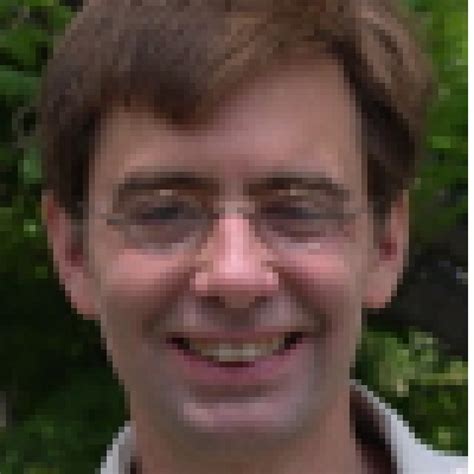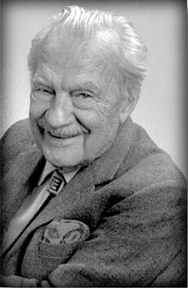A Quote by Stanislaw Lem
Futurologists have been multiplying like flies since the day Herman Kahn made Cassandra's profession "scientific," yet somehow not one of them has come out with the clear statement that we have wholly abandoned ourselves to the mercy of technological progress. The roles are now reversed: humanity becomes, for technology, a means, an instrument for achieving a goal unknown and unknowable.
Related Quotes
Scientific and technological progress themselves are value-neutral. They are just very good at doing what they do. If you want to do selfish, greedy, intolerant and violent things, scientific technology will provide you with by far the most efficient way of doing so. But if you want to do good, to solve the world's problems, to progress in the best value-laden sense, once again, there is no better means to those ends than the scientific way.
The use of electronics is a natural extension of the instrument - it is an electric guitar. So we guitarists have been plugging into something since 1931, and we are not about to stop now. Current advances in technology means we can have a huge array of sounds at our fingertips, and this offers amazing possibilities to the contemporary composer. It is always a guitar (I don't play synthesizer) but it becomes something else all together - more like sculpting sound in real time using metal wires, 5 fingers and a pick.
You can't just stop technological progress. Even if one country stops researching artificial intelligence, some other countries will continue to do it. The real question is what to do with the technology. You can use exactly the same technology for very different social and political purposes. So I think people shouldn't be focused on the question of how to stop technological progress because this is impossible. Instead the question should be what kind of usage to make of the new technology. And here we still have quite a lot of power to influence the direction it's taking.
The human species does not necessarily move in stages from progress to progress ... history and civilization do not advance in tandem. From the stagnation of Medieval Europe to the decline and chaos in recent times on the mainland of Asia and to the catastrophes of two world wars in the twentieth century, the methods of killing people became increasingly sophisticated. Scientific and technological progress certainly does not imply that humankind as a result becomes more civilized.
vivisection is not the same thing as scientific progress. There is such a thing as scientific progress. But this wholesale dedication of scientists to vivisection, which is the easy and cheap way, actually prevents them from scientific progress, for true progress is difficult and requires genius and imagination in its devoted workers.
Sometimes I look at where we've come to, and how much technology and advancement there is, and I can't believe that we're not this perfectly balanced, beautiful, peaceful society. I'm shocked that we're so deeply polarized, that there are people who want progress and they feel guilty for wanting progress, because it somehow seems un-American, because being American means staying ignorant and going backward.
[The career a young man should choose should be] one that is most consonant with our dignity, one that is based on ideas of whose truth we are wholly convinced, one that offers us largest scope in working for humanity and approaching that general goal towards which each profession offers only one of the means: the goal of perfection ... If he works only for himself he can become a famous scholar, a great sage, an excellent imaginative writer [ Dichter ], but never a perfected, a truly great man.
I've kept the people who've been in my career who I feel are my family. Kathy [Kennedy] had been with me since 1978. Janusz Kaminsky, my cinematographer, has made every movie with me since Schindler's List. Michael Kahn has cut every movie I've directed since 1976 when we made Close Encounters together. Rick Carter has done more than 15 of my directed films as a production designer.
But, contrary to the lady's prejudices about the engineering profession, the fact is that quite some time ago the tables were turned between theory and applications in the physical sciences. Since World War II the discoveries that have changed the world are not made so much in lofty halls of theoretical physics as in the less-noticed labs of engineering and experimental physics. The roles of pure and applied science have been reversed; they are no longer what they were in the golden age of physics, in the age of Einstein, Schrödinger, Fermi and Dirac.


